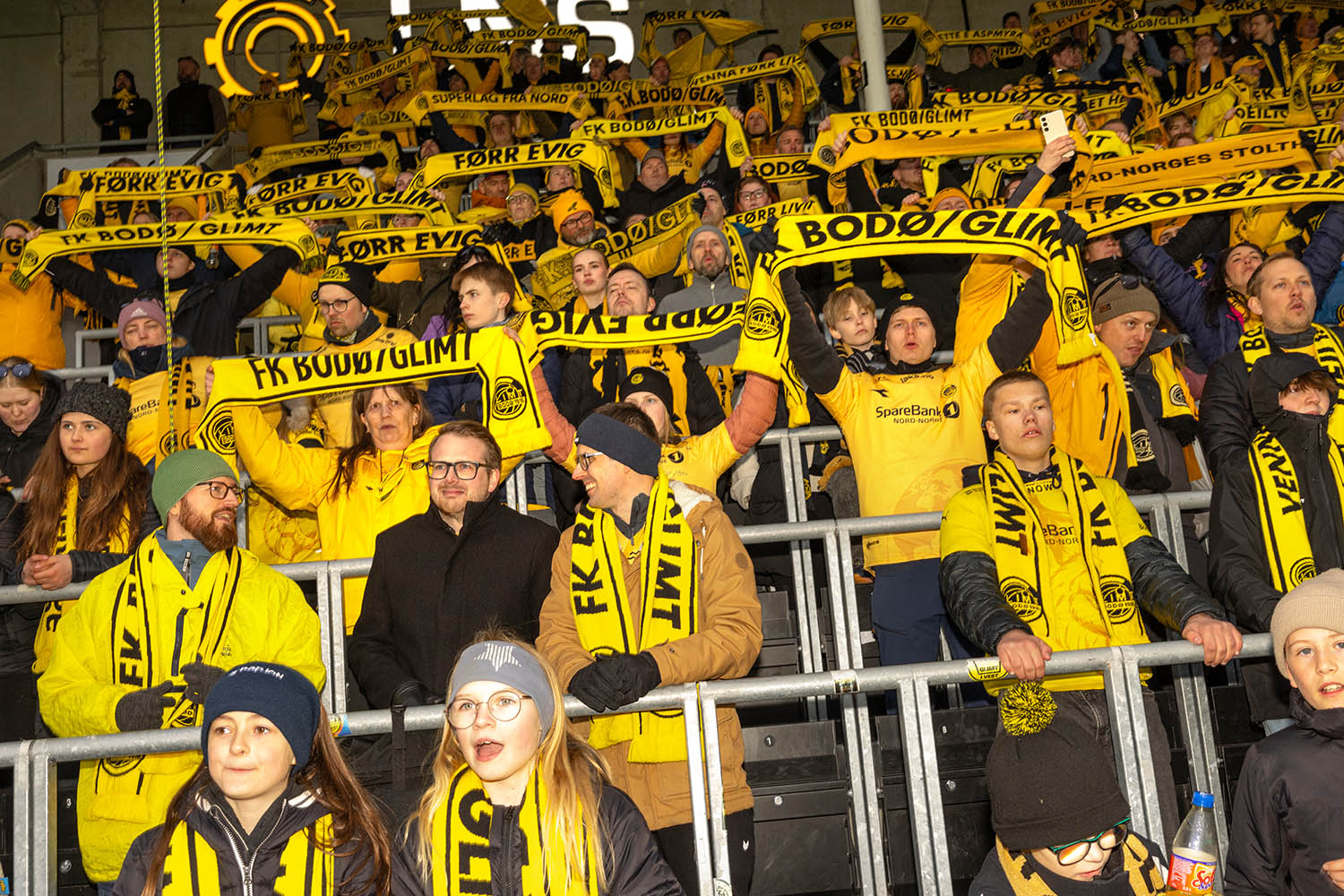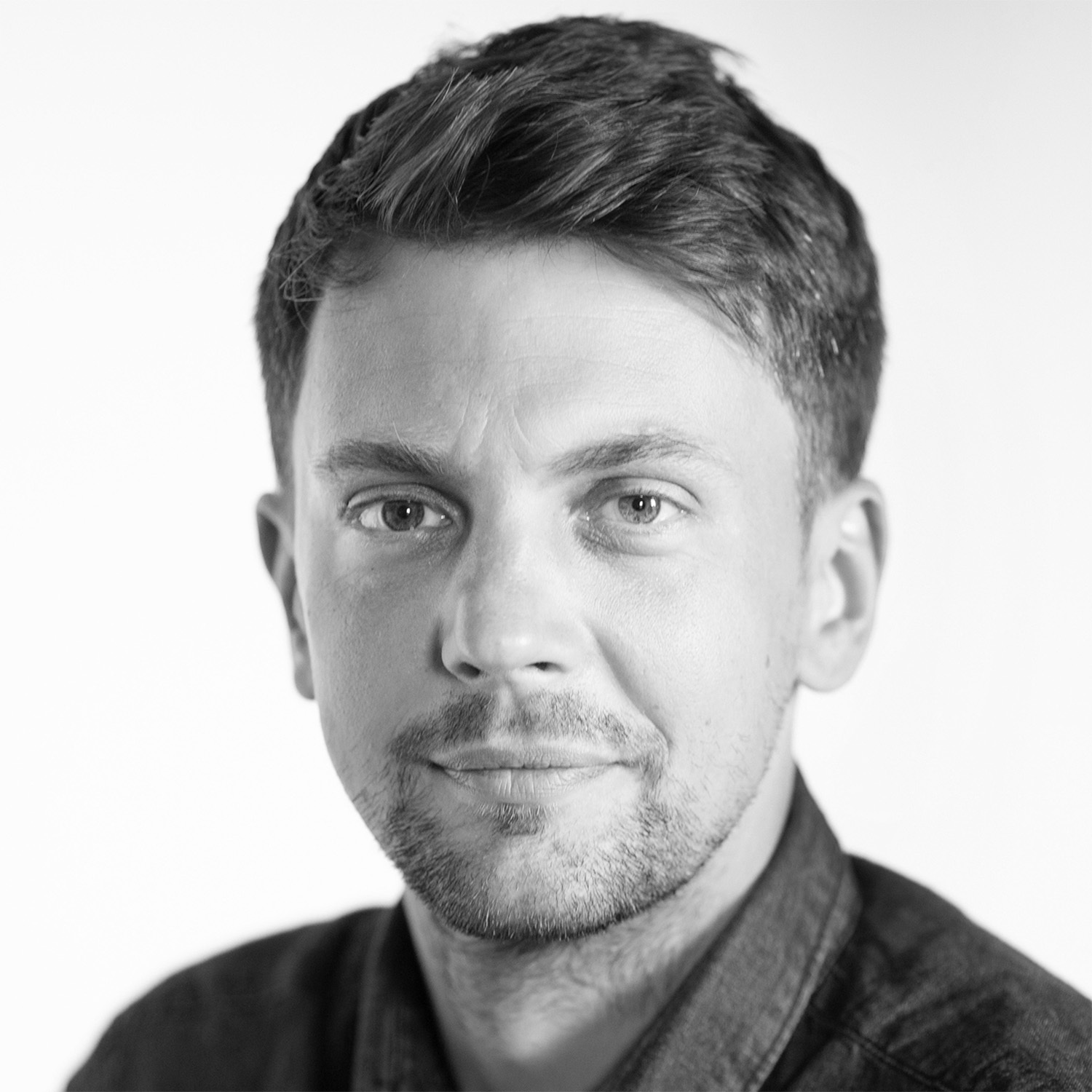Photographs David B. Torch
There is an immutable order to these things, an arc to follow and a pattern to fit. The setting is always different, of course. The characters vary, and the precise details with them, although the roles they play are always familiar. The conclusion, too, tends to be the same: the end always comes to look like a start. That is how, at first, it seemed for Bodo/Glimt.
Late in 2020, with much of the world either locked down still or locked down again, a team not far from the northernmost tip of Europe composed something close to the Platonic ideal of a sporting underdog story, a romance at once poignant and uplifting and, given the context, irresistibly life-affirming.
Bodo sits inside the Arctic Circle, a town so small, so quiet, that a single foghorn blast from a ship pulling into harbour seems to make the whole place shake. Its football team was a source of considerable local pride, but had rarely intruded on the broader consciousness. Bodo/Glimt had claimed just two major honours, both Norwegian Cups, the last of them a generation ago.
And then, with just a couple of hundred fans allowed into their tight, compact stadium because of social distancing restrictions, Bodo’s modest horizons suddenly lifted. Playing furious, intense, adventurous football, they cut a swath through the Eliteserien, Norway’s top division. Erling Haaland and Martin Odegaard started texting their players, letting them know they were watching. Fans hired cherry-pickers simply to get a glimpse of them in the flesh.
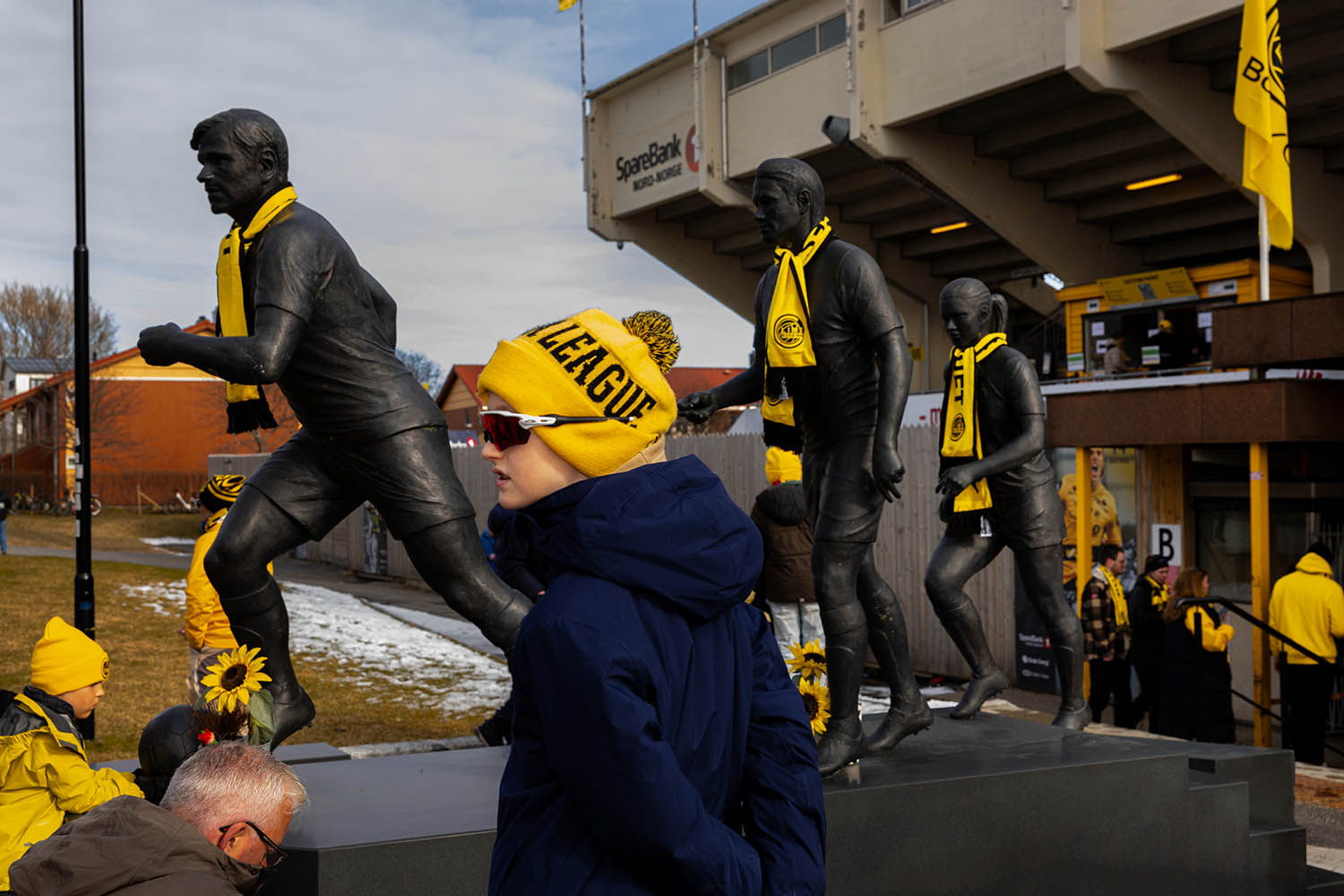
Their story was journalistic catnip: it ticked every box, hit every beat. They had an inspiring coach, Kjetil Knutsen. They employed Bjorn Mannsvaerk, a former Norwegian fighter pilot who did not initially like football, as a sports psychologist. They had a culture of radical honesty and collective responsibility. They had a squad composed, in no small part, of locally-sourced players. One of them, Patrick Berg, was the scion of Norway’s most famous footballing dynasty.
In November of that year, they claimed the club’s first Norwegian championship. At that point, reality seemed to set in. The sea eagles riding the thermal drafts on the town’s shoreline were soon joined by rather less scenic birds of prey. Within a few months, most of the tentpoles of Knutsen’s squad had departed, spirited away by European football’s ever-ravenous vultures.
Berg went to Lens, in France. The winger Jens-Petter Hauge signed for AC Milan. Others still went to Germany, and England, and the Netherlands. For them, it was just the start. For Bodo/Glimt, it seemed like an end. That is where all these stories end; it is just how things work. European football is, at its core, hard-headed and cold-blooded. Plucky upstarts exist to be picked apart.
Ordinarily, anyway. The following season, in 2021, Bodo retained their title. Two more followed. Bodo have now been Norwegian champions in four of the last six seasons. More strikingly, In 2021, Knutsen’s side beat Roma. In fact, they humiliated Roma – José Mourinho’s Roma – 6-1 in the Europa League. In 2022, they beat Celtic, and then Roma again. In 2023, they beat Besiktas, home and away, and took Ajax to extra-time a few months later.
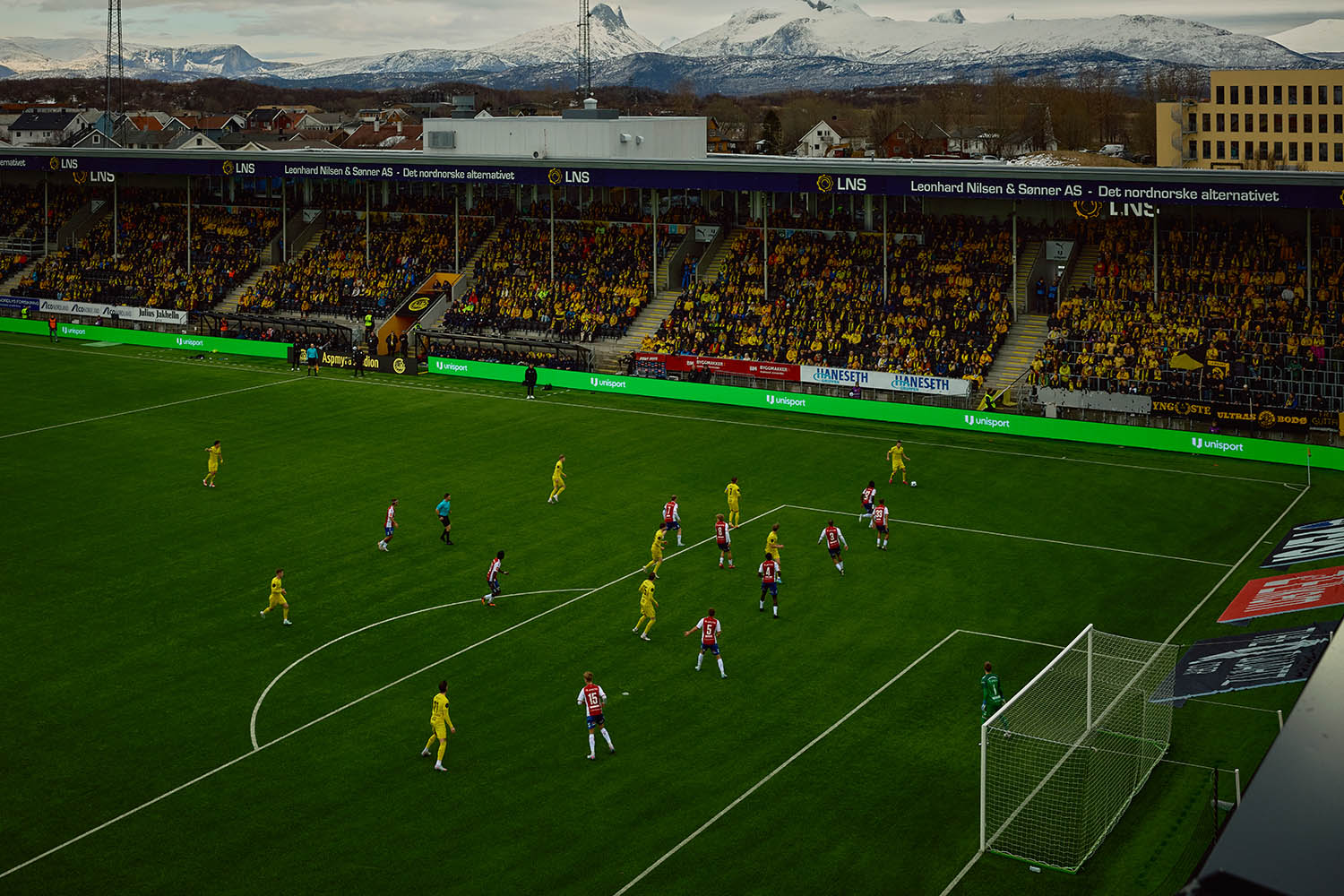
Now, astonishingly, they find themselves in a Europa League semi-final, the first Norwegian side to make that stage of a European competition. They face Tottenham Hotspur over the next eight days, having already beaten Olympiakos and Lazio and Porto this season. Bodo’s story has broken the mould. Romance is not supposed to exist in European football, driven out of the game by raw economics. But somehow, at a place that can feel like the end of the world, it is not only clinging on, but blossoming.
Newsletters
Choose the newsletters you want to receive
View more
For information about how The Observer protects your data, read our Privacy Policy
In recent years, a number of the players who had left the club for things deemed both theoretically bigger and better have started to return. Hauge is back. So is Berg. They did not come back seeking sanctuary, chastened by failure elsewhere. “They had a lot of choices, I know that for sure,” said the defender Odin Bjortuft. “They had a lot of places to choose from, not just here but in Europe, too.”
That the club were in a position to bring them back is testament to what Bodo’s sporting director, Havard Sakariassen, described as their growing “financial muscles.” Thanks to their regular presence in European competition, Bodo have been able to “become competitive in Scandinavia regarding salaries and the business part of it,” he said.They are, as Bjortuft acknowledged, now seen as a destination club, an attractive proposition for ambitious players, particularly in Norway and Denmark. Bodo’s footprint has expanded considerably in recent years. Their staff has grown to the extent that they now do not all know each other by name, a distinct shift. The club’s principles remain the same, but the environment is more “professional,” as Sakariassen described it.
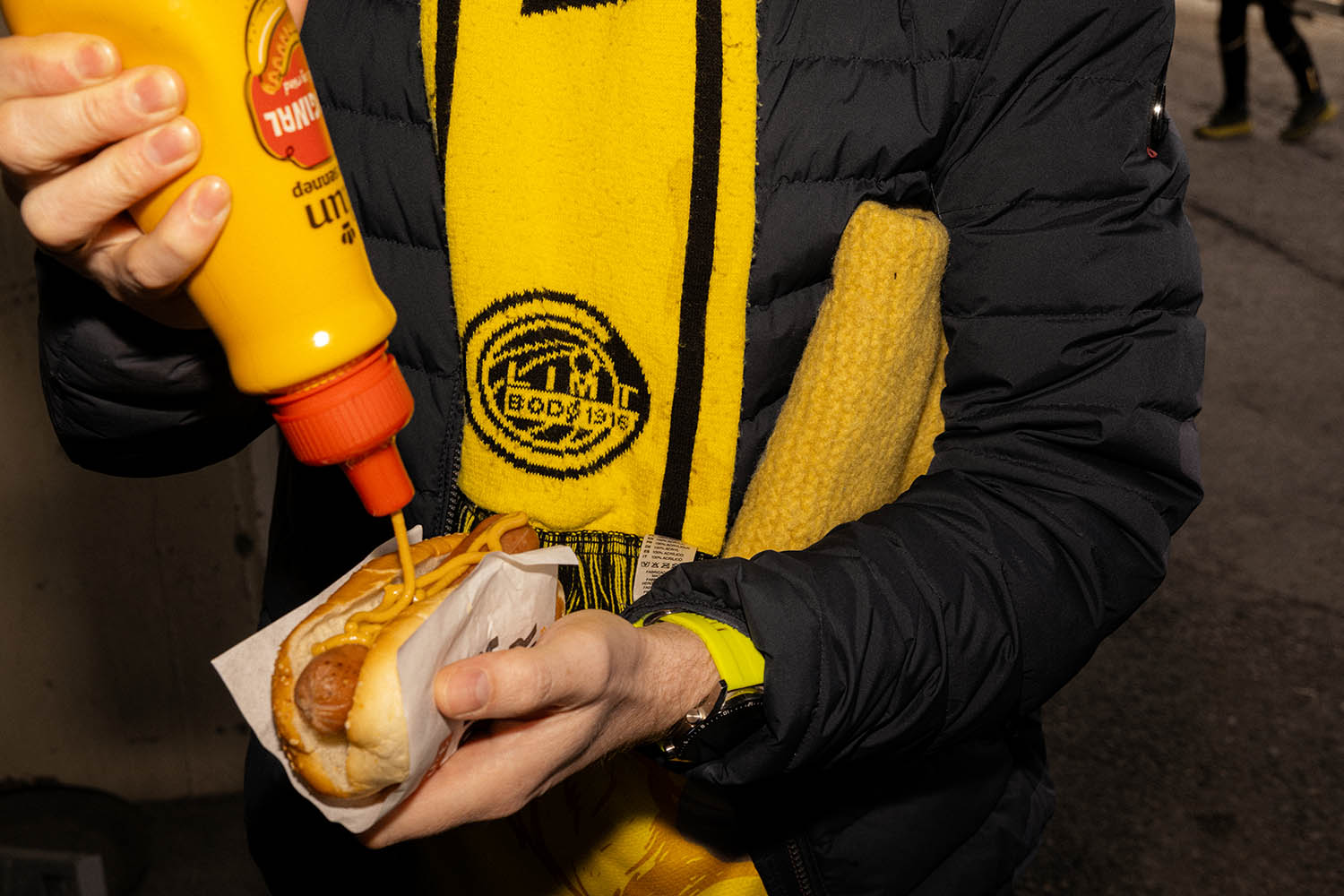
But there is something else, too, something less tangible, something that serves only to intensify the charm of Bodo’s story. For all that the club now stands as a nascent giant in Norwegian football – testament to the distortive effect that European prize money can have in the vast majority of the continent’s domestic competitions – it remains an underdog at heart.
It is still the sort of place where several players live in an apartment block overlooking the stadium; where they can stroll to games, happily pausing to sign autographs for awestruck children along the way; where it does not just feel as though they are representing a community, but are a part of it, too.
It has to be rare to be able to play football with your mates at this level, anywhere in Europe
It has to be rare to be able to play football with your mates at this level, anywhere in Europe
Havard Sakariassen, Bodo’s sporting director
The town has responded to that. The “buzz” in Bodo, Bjortuft said, has been palpable ever since qualification was assured; the same can be said of the pride they feel for a team that has brought a place long used to existing in the shadows into the spotlight. On matchdays, the whole place is festooned in yellow and black. Last week, the final batch of 500 tickets went on sale for the second leg of the meeting with Spurs. The club received more than 50,000 applications: essentially the entire population not of the town but the region that surrounds it, too.
It is this, Sakariassen said, that brought Berg and Hauge back as much as anything. There is an allure to the romance from the outside, a sense that this is the sort of thing that no longer really happens in football; from the inside, it is more potent still. “Some of the guys in our team left us and tried the other side, going to European clubs,” Sakariassen said. “I think it has a value in itself, in your life, to be able to play at this level in your home town, with your friends. I think the culture in the club here is something they really enjoy. It has to be rare to be able to play football with your mates at this level, anywhere in Europe.”
Not, of course, that Bodo are satisfied with this level. The idea of a Norwegian club playing in a European final – the first time a Scandinavian club had made one of Europe’s showpiece games since IFK Gothenburg in 1987 – might still seem fanciful, even at just one remove, but then Bodo have made a habit of defying all sorts of things: economics, gravity, narrative convention.
It is tempting to assume it cannot get any better than this for a club from the roof of the world, that this is the ultimate summit. Bodo, unsurprisingly, do not see it that way; they intend to keep on circling on these thermals for as long as they can. Right at the edge of European football, after all, there still seems to have a romantic streak.“Probably you would have asked, after 2020, how sustainable we were as a top team in Norway,” Sakariassen said. “Five years later, we are still here. I don't feel that we are finished in any way. I think we have a lot of things to improve, so I hope that we just get better in the coming years. Where we end, I don’t know.”
